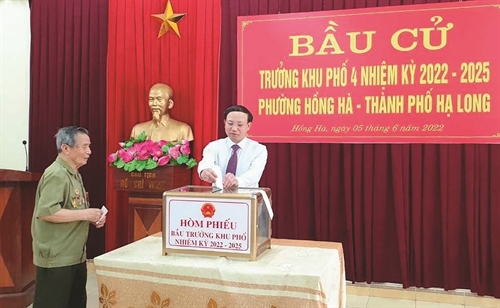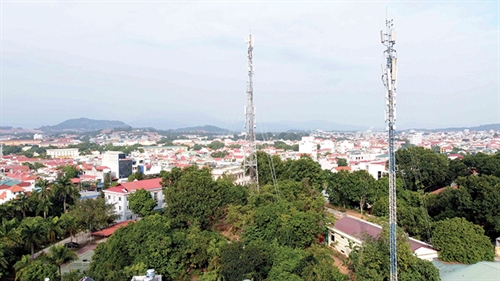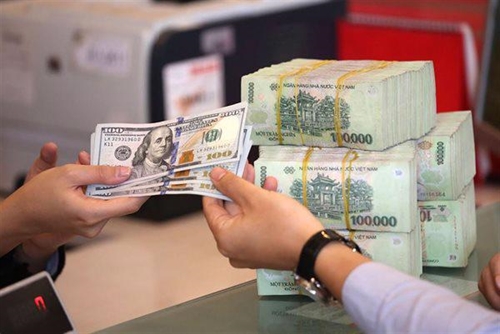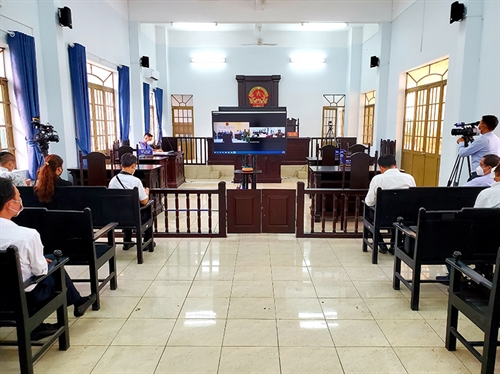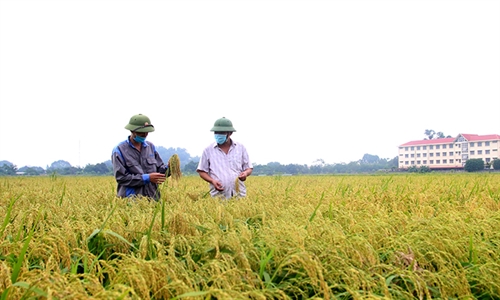 |
| Assorted fruits are displayed for sale in a supermarket in Ho Chi Minh City__Photo: My Phuong/VNA |
The 2023 Law on Price (the Law) will take effect on July 1 next year and supersede its 2012 predecessor with revisions made in 2014, 2020 and 2022.
With 75 articles arranged in eight chapters, the Law provides price management and regulation by the State; synthesis, analysis and forecasting of market prices; price database; valuation; and specialized inspection of prices and examination of the observance of the laws on price and valuation. The Law also defines the rights and obligations of agencies, organizations, individuals and consumers in the field of price and valuation.
Basically, the Law comprehensively regulates contents related to price management and regulation, and valuation. Compared to its previous version, the Law has remarkable changes.
Price valorization
The Law’s new provisions on price valorization help make price valorization activities suit reality.
As per Article 17 of the Law, to be included in the List of goods and services subject to price valorization, goods and services must be essential goods and services and have great impacts on socio-economic development, production and business activities, and people’s lives.
The List of goods and services subject to price valorization provided in Appendix 01 to the Law covers:
(i) Finished petrol and oil products;
(ii) Liquefied petroleum gas (LPG);
(iii) Milk for under-six children;
(iv) Ordinary paddy and rice;
(v) Nitrogen fertilizers; DAP fertilizer; and NPK fertilizer;
(vi) Livestock feed and aquatic feed;
(vii) Vaccines for livestock and poultry disease prevention;
(viii) Pesticides; and,
(ix) Drugs on the list of essential drugs used at medical examination and treatment establishments.
Line ministries and ministerial-level agencies in charge of managing goods and services on the above-mentioned List will specify economic-technical characteristics of these goods and services. When deeming it necessary to adjust this List, line ministries and ministerial-level agencies and provincial-level People’s Committees will have to send requests for the adjustment to the Ministry of Finance for summarization and submission to the Government for the latter to propose the National Assembly Standing Committee to consider and decide on the adjustment.
The Law also specifies price valorization measures and organization of price valorization.
Under Article 19 of the Law, price valorization measures include: (i) regulating supply and demand; (ii) taking financial and monetary measures; (iii) setting specific prices, maximum prices, minimum prices or price brackets suitable to characteristics of goods or services; (iv) applying price-related support measures in accordance with law and treaties to which Vietnam is a contracting party; and (v) using price valorization funds, in case such funds have been set aside.
Agencies competent to decide on price valorization measures will determine the duration of application of price valorization measures on the basis of identifying causes of price fluctuations. This duration may end prior to its expiry date or be extended, depending on the implementation of these measures and on fluctuations in prices of goods and services.
Pricing
The Law institutionalizes the policy of promoting the assignment of tasks and delegation of powers and responsibilities for price management and regulation.
Specifically, the Government will set general orientations for price management and regulation while ministries or ministerial-level agencies and provincial-level People’s Committees will have the competence and responsibility to set prices for goods and services falling within the scope and geographical areas under their management.
According to Article 21 of the Law, the State will set prices for goods and services subject to state monopoly in terms of production or trading in accordance with the commercial law and other relevant laws; goods and services being important natural resources as specified by the law on natural resources; national reserve goods, public-utility products and services, and public non-business services funded by the state budget; and essential goods and services subject to exclusive purchase and sale or having a restricted competitive market and exerting impacts on socio-economic development, people’s lives, and production and business activities.
The List of goods and services with their prices to be set by the State, forms of pricing, and competence and responsibility for the pricing are provided in Appendix 02 to the Law. Economic-technical characteristics of goods and services on this List must comply with relevant regulations. In the absence of applicable regulations, ministries, ministerial-level agencies and provincial-level People’s Committees will issue such regulations according to their competence.
When it is required to adjust the above-mentioned List, ministries, ministerial-level agencies and provincial-level People’s Committees will send requests for the adjustment to the Ministry of Finance for the latter to propose the Government to submit the adjustment to the National Assembly Standing Committee for consideration and decision.
The Minister of Finance is held responsible for establishing the common pricing method applicable to goods and services with prices to be set by the State.
Application of the Law and relevant laws
In case the Law has price-related provisions different from those of other laws promulgated before the effective date of the Law, such provisions will prevail, except cases in which the pricing by the State of a number of goods must comply with:
- The land law, for land prices;
- The housing law, for house prices;
- The electricity law, for electricity and electricity-related service prices;
- The law on medical examination and treatment, for medical examination and treatment service prices;
- The laws on education, higher education, and vocational education, for school fees and service prices in the fields of education and training and vocational education; or,
- The law on intellectual property, for royalties for the exploitation and use of works, phonograms and video recordings in case of copyright and related rights restriction, compensations for the patent use rights licensed under mandatory decisions in case patent use rights transferees and exclusive patent use rights holders cannot reach agreement, and compensations for the plant variety use rights licensed under mandatory decisions.
In case other laws promulgated after the effective date of the Law are intended to contain special provisions on price management and regulation different from those of the Law, it is necessary to specify issues that must comply or are not required to comply with the Law, and issues that must comply with such special provisions of other laws.
In case other laws promulgated after the effective date of the Law additionally specify goods and services to be priced by the State, regulatory impact assessment must be carried out; and such goods and services must satisfy at least one of the criteria specified in Article 21.1 of the Law. At the same time, it is required to clearly define the pricing competence and responsibility and specify the form of pricing, pricing grounds and methods, whether or not the pricing documents are issued in accordance with the Law, and issues that must comply with such other laws.-




